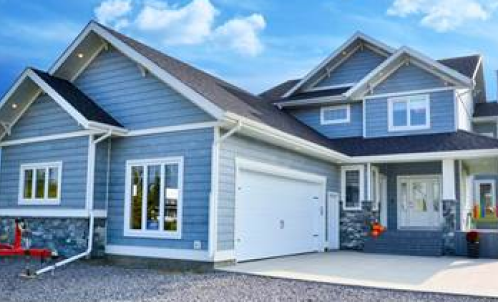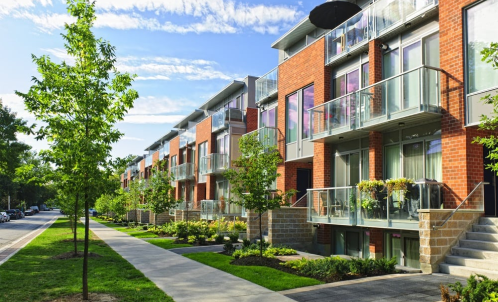Plan for your budget
Homeownership can be very exciting. Before you decide to buy a home, make sure you carefully consider the costs. According to Canada Mortgage and Housing Corporation (CMHC), your monthly housing costs should not be more than about 35% of your gross monthly income. This includes costs such as mortgage payments and utilities. Your entire monthly debt load should not be more than 42% of your gross monthly income. This includes your mortgage payments and all your other debts.
Check if you are financially ready to own a home
You may want to start with comparing how much you currently spend on expenses and debt payments with the amount you have saved or invested. Then you will have an idea on how much you can afford to spend on housing each month without risking your financial health. When planning your budget, always include the upfront cost such as down payment, land registration, home inspection fees etc. and homeownership expenses. Check your credit score to see if you can demonstrate your ability to consistently pay bills and debts.
Saving for your home
Once you are ready to own a home, the next step towards buying a house is to save for a down payment. In Canada, usually you need to put down at least 5% of the home purchase price as a down payment. You may already have a down payment saved, but if not, you can get one by saving your money every month with a WealthONE High Interest Savings Account, or a WealthONE GIC which can boost your savings even faster. You can receive tax advantages if you choose to save with a TFSA or RRSP.
You may be eligible for The Home Buyers’ Plan (HBP)
If you’re a first-time home buyer or haven’t owned a property within the last four years in Canada, you could be qualified for HBP which lets you withdraw up to $35,000 from your RRSP accounts to help purchase a home. You won’t be taxed on the money you withdraw (provided that you pay it back on time), and if you’re buying a home with your partner you could withdraw up to $70,000. By using the HBP, you might be able to make a bigger down payment than would have been possible using your savings alone.
Paying for your home
Applying for a mortgage requires a lot of paperwork, and prepping your documentation in advance is particularly useful if you find your dream house and need to move quickly through the mortgage approval process. A mortgage is likely the biggest loan you get in your lifetime. It’s important that you understand some important facts.
Get a Mortgage pre-approval
A pre-approved mortgage tells you how much you can afford and how your monthly mortgage payments will look like. This isn’t a guarantee of final approval, but it can help you to narrow down your search. It will also help you make decisions about affordability, neighborhood and home type or size. Always consider possible changes such as loss of income, increased expenses or rising interest rates. Use our Affordability Calculator to help you determine how much you can borrow.
Read More
Pay for the closing costs
Read More
Finding the right home in the right neighborhood
Think long term when buying a home: What kind of home do you need now? What will you need in 5 to 10 years? When choosing a neighborhood for your primary residence, especially for newcomers still not familiar with the area, here are some suggestions to consider:
- access to highways or public transportation for easy accessibility to your workplace, sports and recreation, services of personal interest, etc.
- whether located near amenities such as highly rated schools, etc.
- employment rates
- rate of vacant properties
Detached? Townhouse? Condo? There are a lot of options and you can choose between the following ownership types in Canada: Freehold, Leasehold, Condominium, Co-operatives (co-ops). If you’re considering a condo, make sure you review all the financial and technical audits for the condominium corporation to avoid surprises later on.
It’s important to have a team of experienced professionals to help you during the buying process. Take the time to check references before deciding who to work with. Your homebuying team may include: a mortgage broker, a real estate agent, a home inspector, an appraiser, a land surveyor, a builder or contractor, a lawyer or notary, and insurance agent. Often your mortgage broker or real estate agent can introduce you to many of the other qualified professionals you may want to work with.
Working with a Mortgage Broker
Many home buyers enlist the services of a Mortgage Broker to find them the best mortgage option. An experienced, competent Mortgage Broker works on your behalf to find the right mortgage for your situation.
How a Mortgage Broker can help
Mortgage brokers have regular contact with a wide variety of lenders, some of whom you may not even know about. They constantly review the market are accustomed to working with borrowers who may have unique needs, including newcomers, self-employed, individuals who have foreign income or high net worth.
Retaining the services of a real estate lawyer will help reduce the risk of potential problems on closing. Among other things, an experienced real estate lawyer will clarify your obligations as expressed in the agreement of purchase and sale, search title to the property for any unwanted encumbrances and explain the contents of all documentation to be signed on closing. Ultimately, lawyers who specialize in real estate can offer you peace of mind during the home buying process.

Borrow
Buy a Home
Buy your next home or refinance your property with a unique mortgage tailored to your borrowing situation.

Borrow
Invest in residential real estate
When you invest in real estate in Canada, you may require flexible financing options, including a mortgage solution tailored to your specific property needs.




